Crocodiles are aquatic reptiles, and among the most feared carnivores on Earth, because of their size, big powerful jaws, and aggressiveness. They are so successful predators – once they were living alongside the dinosaurs. After the Chicxulub impact, which happened around 66 million years ago, the non-avian dinosaurs were gone but crocodiles managed to survive. Here are the top 20 amazing crocodile facts about these fascinating beasts.
Facts about crocodiles
1. Crocodiles are the biggest reptiles on Earth
Saltwater crocodiles are the biggest reptiles in the world. They can grow up to 6.17 meters (20 feet 3 in) and can weigh more than a ton. The largest crocodile ever recorded, Lolong was an Australian saltwater crocodile.
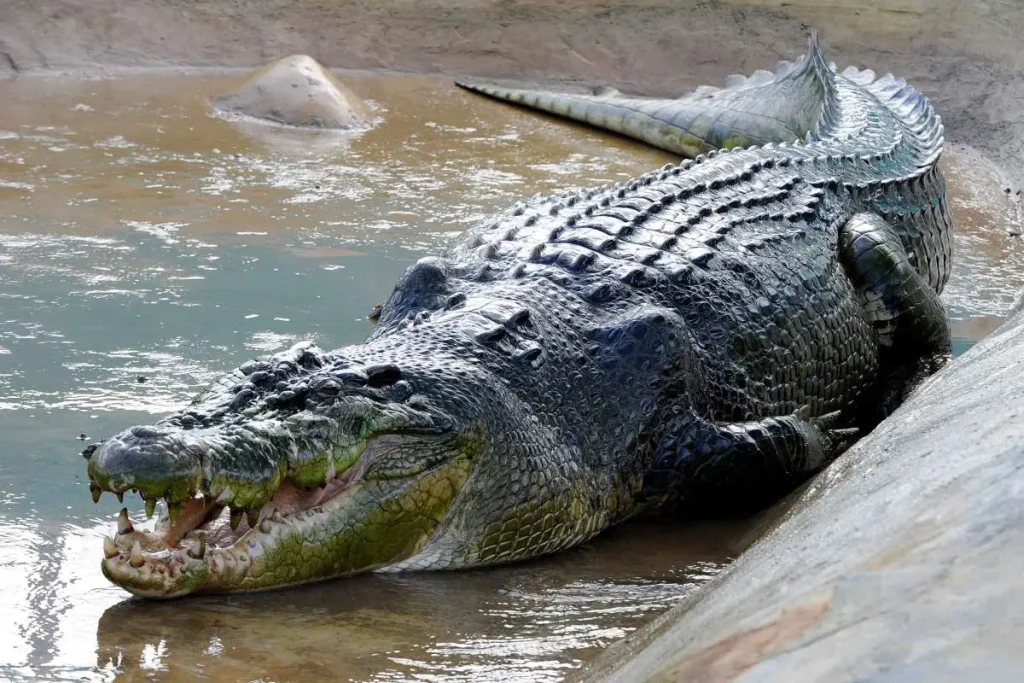
There are even reports of crocodiles bigger than Lolong in the wild.
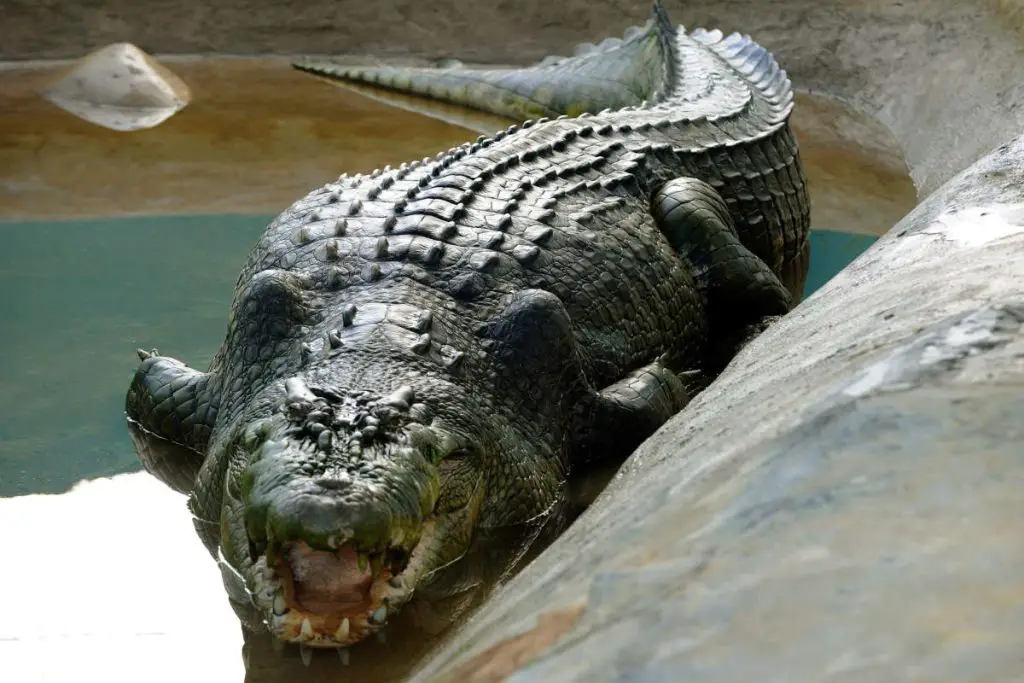
Related: 10 Largest Crocodiles Ever Recorded
2. Since they are big, there is a crocodile species called “Dwarf Crocodile”
The smallest crocodile species on Earth is the dwarf crocodile (Osteolaemus
3. Crocodiles are widespread
They can be found in all inhabited continents with the exception of Europe.
4. Crocodiles are closely related to dinosaurs and birds
Despite being classified as “reptiles”, crocodiles (and all crocodilians, including alligators) are more closely related to dinosaurs and birds (which are actually avian dinosaurs) than to most animals classified as reptiles.
5. Crocodiles really do produce tears
Crocodiles really do produce tears. Because, while eating, they swallow too much air, which gets in touch with lachrymal glands (glands that produce tears) and forces tears to flow. But it’s not actually crying. The term “Crocodile tears” (and equivalents in many other languages) refers to a false, insincere display of emotion, such as a hypocrite crying fake tears of grief.
It is derived from an ancient anecdote that crocodiles weep in order to lure their prey, or that they cry for the victims they are eating, first told in the Bibliotheca by Photios I, who was the Ecumenical Patriarch of Constantinople. This tale was first spread widely in English in the stories of the Travels of Sir John Mandeville in the 14th century and appears in several of William Shakespeare’s plays.
6. They can keep their jaw open underwater
Crocodiles have a valve at the back of their throat allowing them to open their jaw underwater.
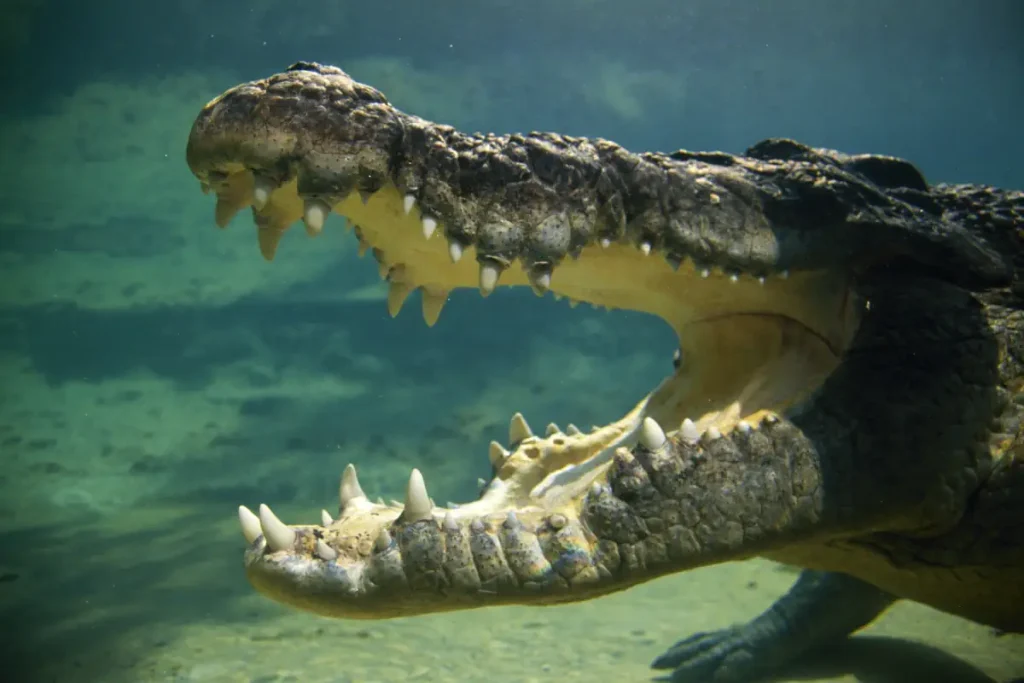
7. They can live long
They have an average lifespan of at least 30-40 years and in the case of larger species an average of 60-70 years. There are claims of some individuals exceeding 100 years, but there is no strong evidence to support that.
8. Their ancestors (prehistoric crocodiles) were much bigger
The first crocodiles appeared around 250 million years ago, at the same time as dinosaurs appeared. The prehistoric ancestors of crocodiles were much bigger than today’s counterparts.
But, overall, crocodiles today look the same as they did 200 million years ago.
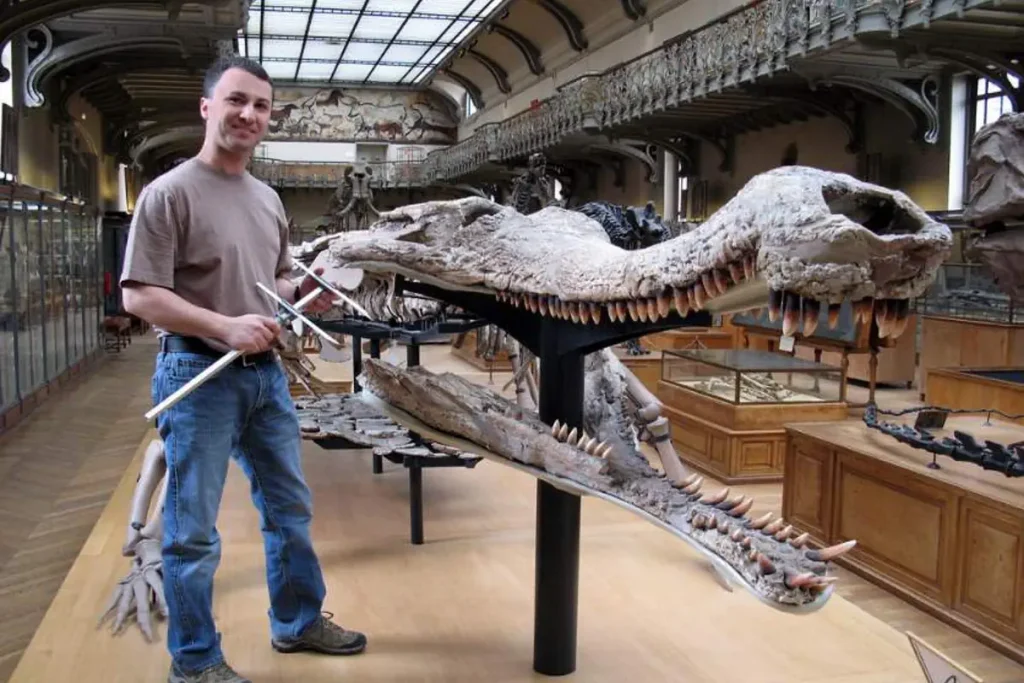
9. Saltwater crocodiles have the strongest bite
One of the scariest crocodile facts: crocodiles have the strongest bite ever measured. Paleobiologist Gregory M. Erickson and colleagues tested the bite forces of all 23 living crocodilian species.
The strongest, saltwater crocodiles (naturally) slammed their jaws shut with 3,700 pounds per square inch (psi), or 16,460 Newtons, of bite force. For comparison, a lion has a bite force of 1,314.7 Newtons at the canine tips and 2,023.7 Newtons at the carnassials.
Another interesting crocodile fact is that despite their enormous bite force, the muscles to open the jaw are extremely small and weak: a human can use her/his bare hands to keep a crocodile’s mouth closed.
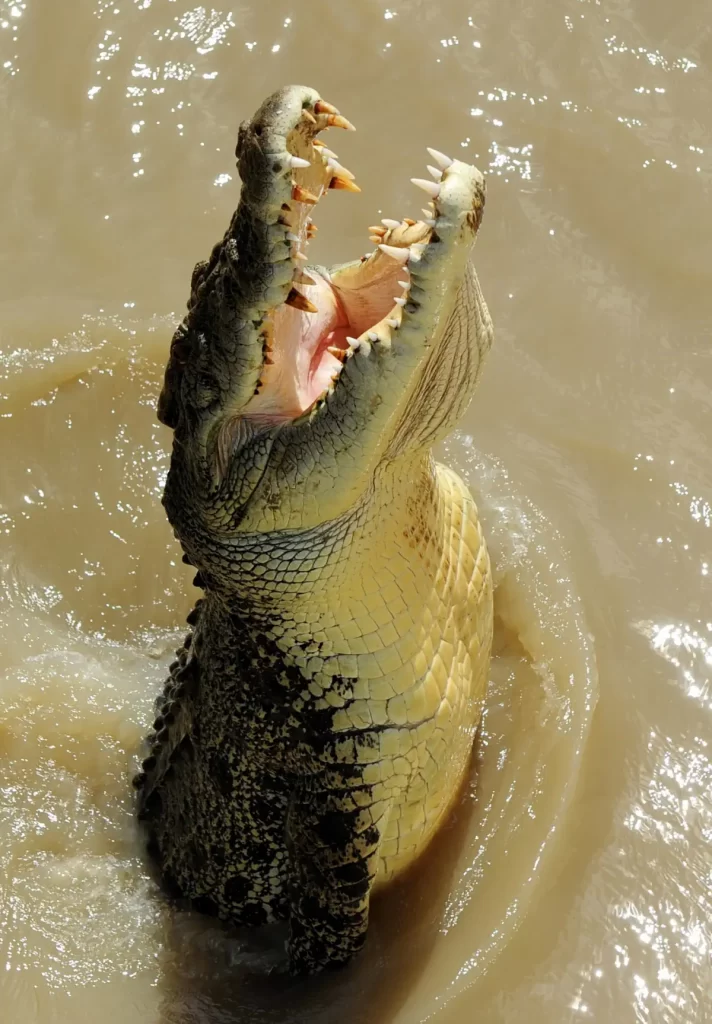
10. They have a good night vision
Their night vision is very good and they are mostly nocturnal hunters.
11. Their heart is sophisticated
Crocodiles have the most sophisticated heart in the animal kingdom, and actively change the destination of blood that flows through them depending on requirements.
12. They carry their hatchlings in their mouth
One of the most interesting crocodile facts: they carry their babies to the water in their mouths. Baby crocodiles can make noises from inside their eggs before they hatch. The mother can hear their voices, then digs up the eggs from the sand, and takes the hatchlings to the water.
13. They can find their home from long distances
Crocodiles may possess a homing instinct. In northern Australia, three rogue saltwater crocodiles were relocated 400 km (249 mi) by helicopter, but returned to their original locations within three weeks, based on data obtained from tracking devices attached to them.
14. They are (obviously) good swimmers
Their top swimming speed is 15 km/h (9.3 mph). This is fast!
15. Crocodile feet are webbed
Crocodiles have webbed feet which, though not used to propel them through the water (they tuck their feet to the side while swimming and use the power of their tails), allow them to make fast turns and sudden moves in the water or initiate swimming.
16. They are cold-blooded
Like other reptiles, crocodiles are cold-blooded. So, they have a very slow metabolism, which allows them to survive long periods without food. They can survive many months on a single large meal.
17. They cannot sweat
Crocodiles do not have sweat glands and release heat through their mouths. They often sleep with their mouths open.
18. Crocodiles don’t chew their food
They do not chew their food. Many large crocodilians swallow stones, which may act as ballast to balance their bodies or assist in crushing food, similar to grit ingested by birds.
19. Their infant mortality rate is very high
Most of the young crocodiles (some sources give a percentage as high as 99%) are eaten in their first year of life – by other predators like lizards, other crocodiles, hyenas, and even fish.
20. Crocodiles are amphibious
They are amphibious reptiles, spending part of their time in water and part on land. Although the saltwater crocodile and the American crocodile are able to swim out to sea, no living species of crocodilians can be considered truly marine.
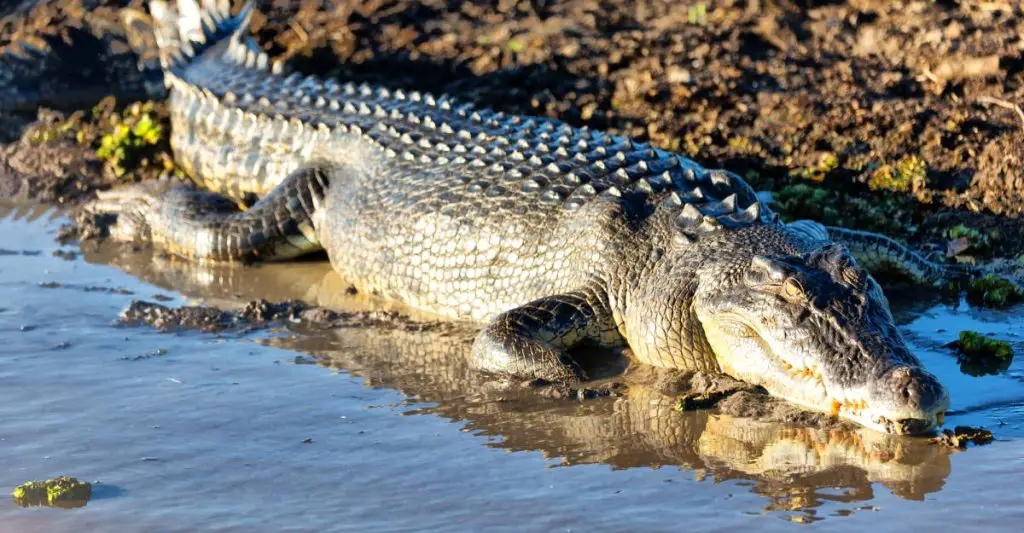
Common misconceptions about crocodiles
After the crocodile facts, here are the misconceptions about crocodiles.
- Contrary to the common myth, crocodile skin (and also alligator skin) is not bulletproof.
- “You can not outrun a crocodile. They can run as fast as a racehorse.” This is absolutely wrong. A racehorse can run faster than 40 mph (64 km/h) with a record top speed of 43.97 mph (70.76 km/h). Crocs cannot get anywhere near that fast on land. Their maximum speed is 12 mph (19 km/h) on land, and for a very short distance (around 20-25 meters), when they “belly run”. They usually go much slower than that. While walking on their legs, which is called the “high walk”, their top speed is only 5 km/h (3 mph). So, an average healthy human can easily outrun a crocodile. They do, however, accelerate very fast, thundering from 0 to 15 km/h in no time, both while swimming and running.
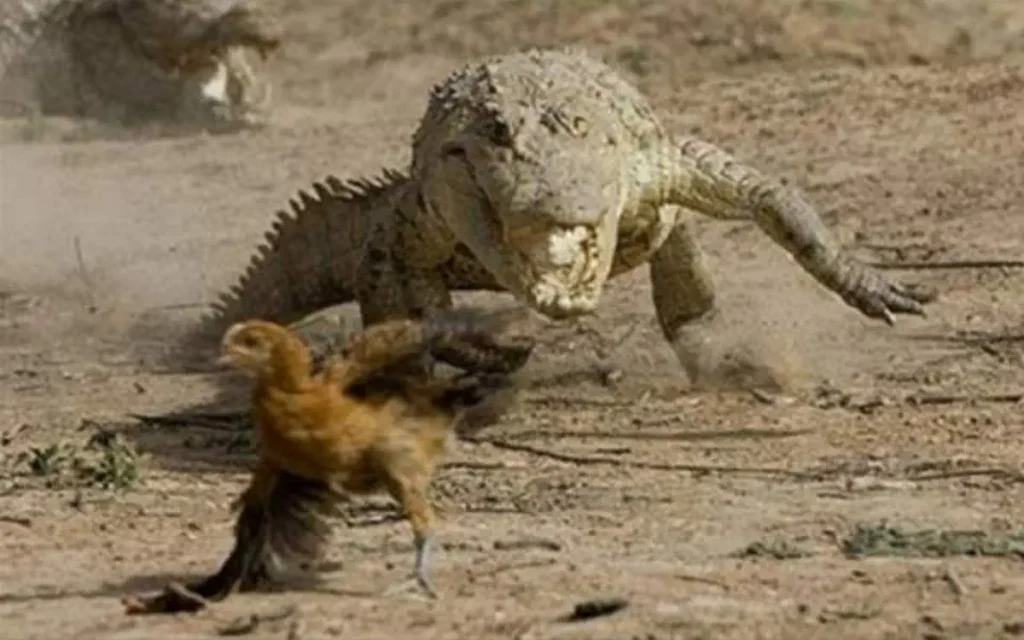
- Egyptian plover, also known as the “crocodile bird” does not clean the crocodile’s teeth. No bird clean crocodile teeth. This is a pure myth. The photos showing Egyptian plovers cleaning crocodile teeth are fake. Experts say “Nobody has ever photographed or filmed this, but the myth persists to this day.” This myth actually originated with the ancient Greek philosopher Herodotus (484-c. 425 BC), but no known photographic evidence exists, and the written accounts are considered suspect also by the biologist Thomas Howell.
- Neither crocodiles nor alligators eat their babies. No crocodilian does that. Evon Hekkala, the principal investigator at Fordham University’s Hekkala Lab and a research associate at the American Museum of Natural History, says “A long time ago, people would observe the crocodiles and alligators digging up nests and having hatchlings in their mouths, and they would think that they were eating them.” In fact, they were taking their babies to the water. See the “crocodile facts #12”.
- Crocodiles are not dumb. While the brain of a crocodilian is fairly small, it is capable of greater learning than most reptiles.
Sources
- Crocodile on Wikipedia
- Saltwater crocodile on Wikipedia
- Crocodilia on W
ikipedia - “Crocodiles Have Strongest Bite Ever Measured, Hands-on Tests Show”, on National Geographic
- “Welcome to croc country” on australiangeographic.com.au
- “7 Myths and Misconceptions About Crocodilians, Debunked” on mentalfloss.com
- “Top 10 Most Dangerous Animals in the World” on the Fact Retriever website
- Moon Landings: All-Time List [1966-2025] - February 2, 2025
- What Is Max-Q and Why Is It Important During Rocket Launches? - January 16, 2025
- Top 10 Tallest Rockets Ever Launched [2025 Update] - January 16, 2025
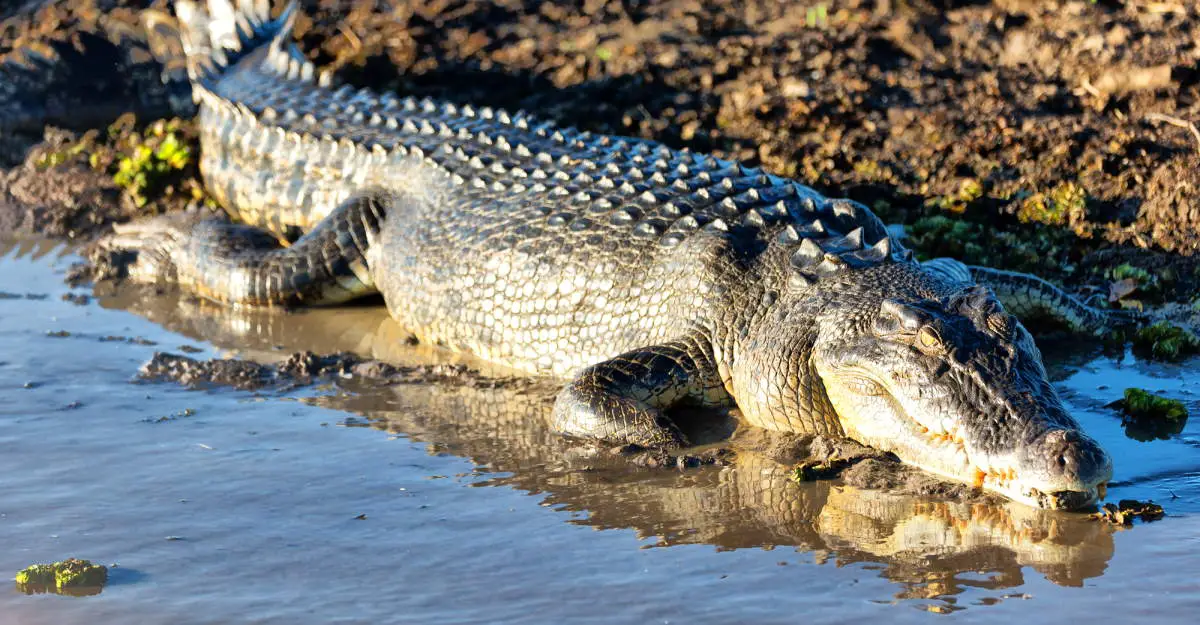
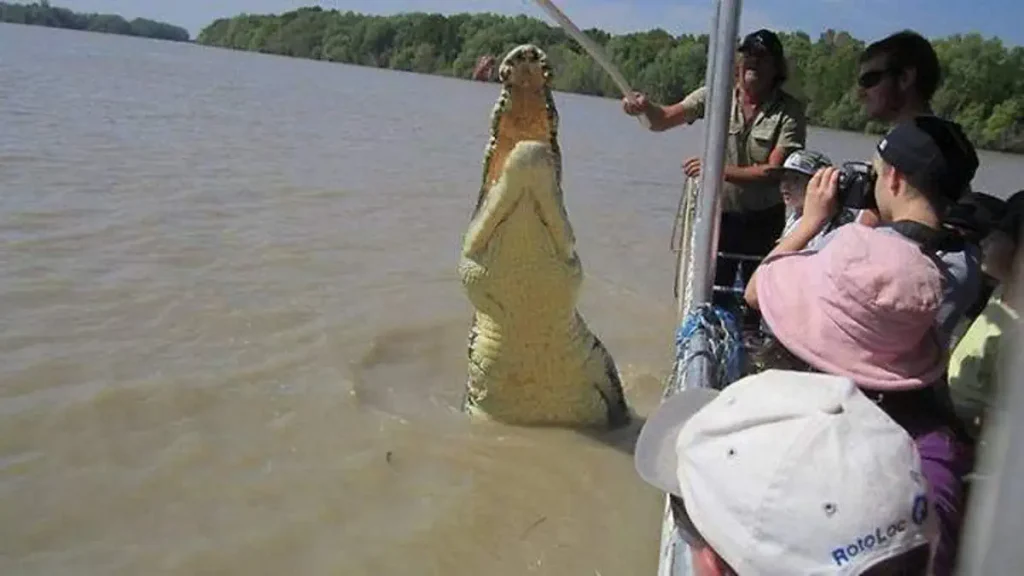

7 replies on “20 Amazing Crocodile Facts”
Crocs probably scare me more than any other animal on earth. I would never get anywhere near one, I know they can run a lot faster than man! And I’d NEVER get in any water where they are anywhere near!
I love all crocodiles but I probably would also not get in the water with some near by.
I love crocodiles too. They’re awesome animals. I used to surf on a pet crocodile when I was little. Crocodile Hunter was (and still is) the best TV show ever. In fact, I fell in love with my husband when he told me who his past life was (Crocodile Hunter.)
i would if they are like babies or something and i would not get in the water with some big croc near by me
I would get in the water and I’m 10
wow you 10
When, you do attack croc and didn’t get it, do it takes revenge after some years later and attack you again?